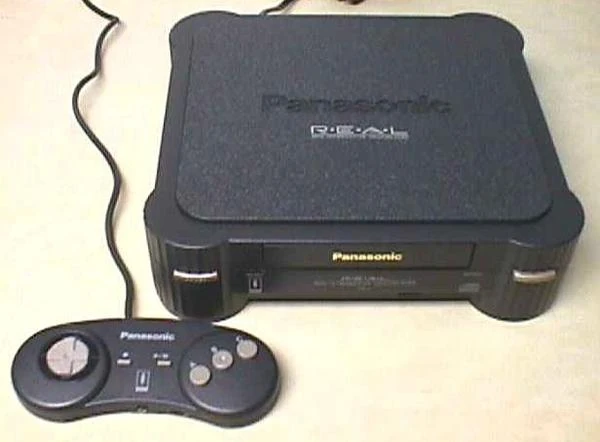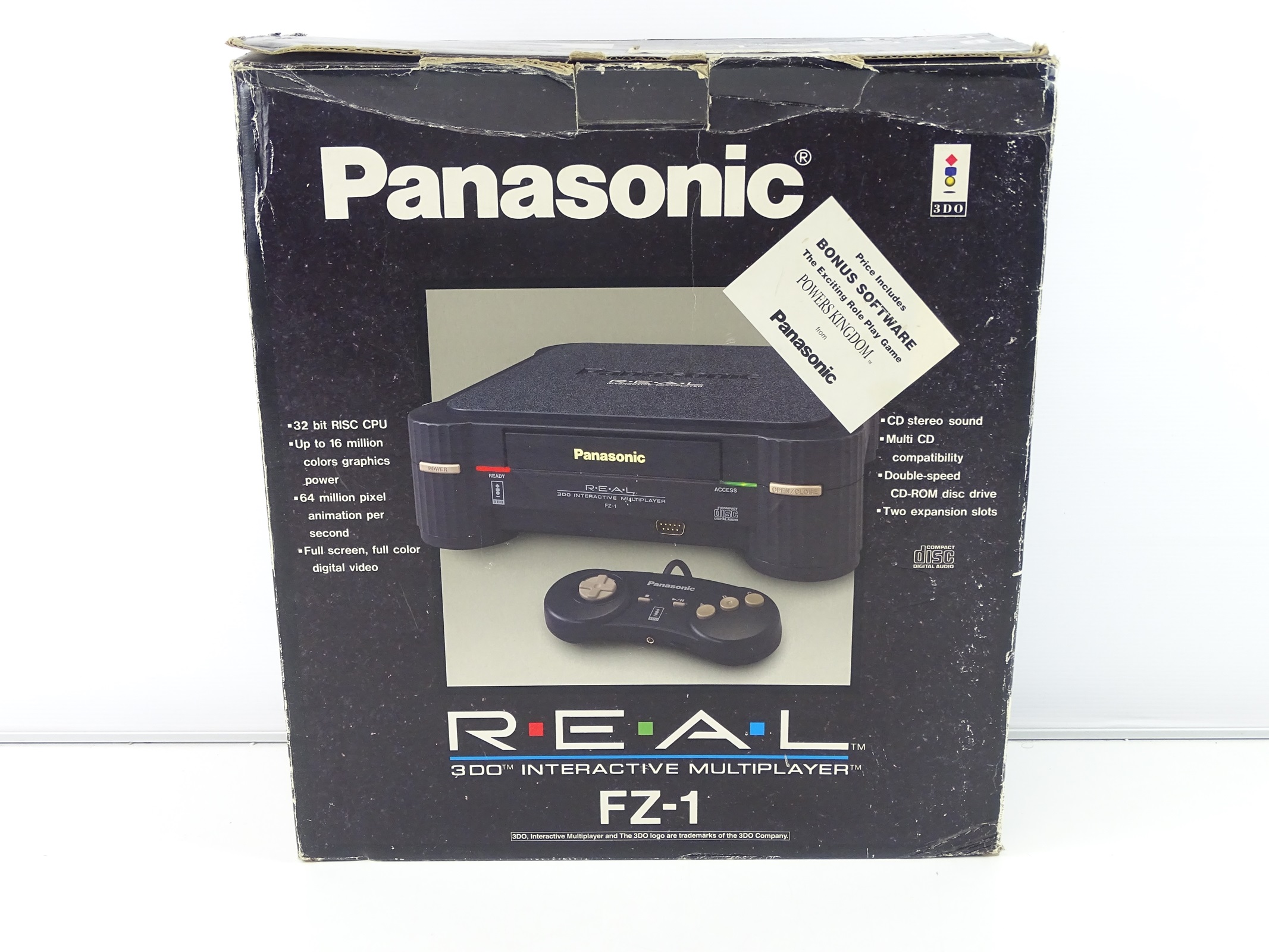Description
The 3DO Interactive Multiplayer: A Revolutionary Gaming Console
In the pantheon of gaming history, few consoles evoke as much intrigue and nostalgia as the 3DO Interactive Multiplayer. Released in 1993, the 3DO was not just another video game console; it was a bold experiment in multimedia entertainment that aimed to reshape how games were developed, marketed, and played. Although it ultimately struggled in the marketplace, the 3DO’s legacy remains significant in the evolution of gaming technology.
The Vision Behind the 3DO
The brainchild of Electronic Arts founder Trip Hawkins, the 3DO Interactive Multiplayer was conceived as a platform that would transcend traditional gaming. Hawkins envisioned a device that could support not only video games but also music, movies, and interactive educational content. The goal was to create a multimedia hub that would appeal to a broader audience, drawing in casual users as well as hardcore gamers.
One of the most innovative aspects of the 3DO was its licensing model. Instead of manufacturing the console in-house, 3DO licensed its technology to various hardware manufacturers. This strategy resulted in several versions of the console, each with unique features and designs, created by companies such as Panasonic, GoldStar, and Sanyo. This open licensing approach allowed for greater innovation but also led to a fragmented experience for consumers.
Technical Specifications and Innovations
At its core, the 3DO Interactive Multiplayer boasted cutting-edge technology for its time. It was powered by a 12 MHz ARM610 CPU and featured a graphics processor capable of rendering 3D graphics with relative ease. The system supported CD-ROM media, which allowed for larger storage capacities than cartridges, paving the way for more complex games with rich audio and video content.
The 3DO was one of the first consoles to incorporate fully digitized audio and video, enabling game developers to create cinematic experiences that were previously unheard of in the gaming world. This focus on multimedia content paved the way for titles that emphasized storytelling, character development, and immersive environments, marking a departure from the pixelated sprites of earlier consoles.
Notable Games and Software
The 3DO Interactive Multiplayer launched with a library of games that included some memorable titles. “Gex,” a platformer featuring a wisecracking gecko, and “Road Rash,” a motorcycle racing game, quickly garnered attention. Additionally, “Star Control II,” a strategy game celebrated for its engaging narrative and deep gameplay, found a dedicated fanbase on the platform.
The 3DO also served as a launchpad for several interactive FMV (full-motion video) games, such as “Dragon’s Lair” and “Plumbers Don’t Wear Ties.” While these titles showcased the potential of video and interactivity, many were criticized for their shallow gameplay mechanics and reliance on video rather than engaging gameplay.
Market Struggles and Legacy
Despite its innovative features and an impressive library of games, the 3DO struggled to find a foothold in the competitive gaming market. Its high price point, often exceeding $600 at launch, deterred many potential buyers. Additionally, the open licensing model led to a saturation of poorly made games, which diluted the brand’s reputation.
By the mid-1990s, the rise of more affordable consoles like the Sony PlayStation and Sega Saturn, combined with the 3DO’s limited library and high costs, contributed to its decline. The console was officially discontinued in 1996, marking the end of a brief but ambitious chapter in gaming history.
Despite its commercial failure, the 3DO Interactive Multiplayer had a lasting impact on the gaming landscape. It opened the door for more ambitious multimedia experiences and demonstrated the potential for video games as a storytelling medium. The concept of a console that could serve multiple entertainment functions continues to resonate, influencing modern devices like the PlayStation 5 and Xbox Series X, which have integrated streaming, media playback, and gaming into a single platform.
Conclusion
The 3DO Interactive Multiplayer remains a fascinating artifact of the 1990s gaming era—a bold experiment that pushed the boundaries of what a gaming console could be. While it may not have achieved commercial success, its vision of an interactive multimedia platform has had a profound influence on the development of video games and continues to inspire innovation in the industry today. As we reflect on the 3DO, we are reminded of the importance of creativity and ambition in the evolution of gaming technology, paving the way for the future of interactive entertainment.




















